Can Babies Have Cinnamon? Cinnamon can enhance the taste of almost any dessert, and it is a common seasoning in many dishes. However, as good as Cinnamon might be, we still have to pay attention when we introduce it to a baby's diet. Cinnamon was commonly used as both a spice and a medicine, thanks to its health benefits.
Jump to:
- Can Babies Have Cinnamon?
- What are the health benefits of Cinnamon?
- Is there any known allergic reaction to Cinnamon in babies?
- When can babies have Cinnamon?
- In what form of Cinnamon would be the best for babies?
- Can babies have Cinnamon applesauce?
- Can toddlers have Cinnamon?
- Can Cinnamon be used for teething babies?
- Does Cinnamon cause gas in babies?
- What other spices can babies have?
- Can you add Cinnamon to baby rice cereal
- Can babies have Cinnamon graham crackers?
- 5 best baby food recipes using Cinnamon
- Can a nursing mom eat Cinnamon?
Can Babies Have Cinnamon?
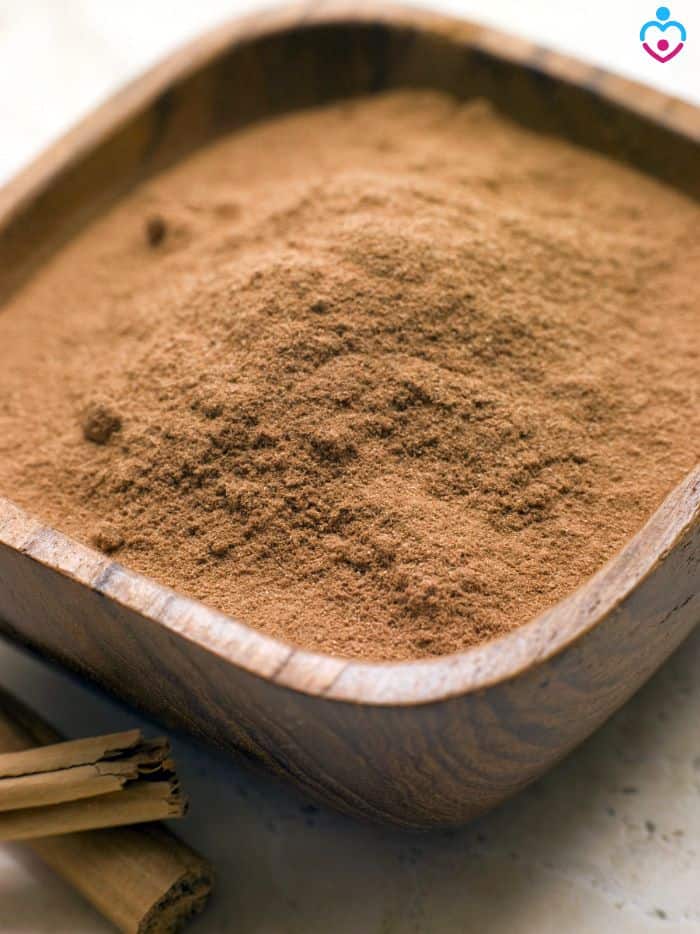
Cinnamon is considered safe for babies that are at least six months old. But even so, you still need to be informed regarding all the benefits as well as the potential side effects of this spice before you add it to your baby's meal.

What are the health benefits of Cinnamon?
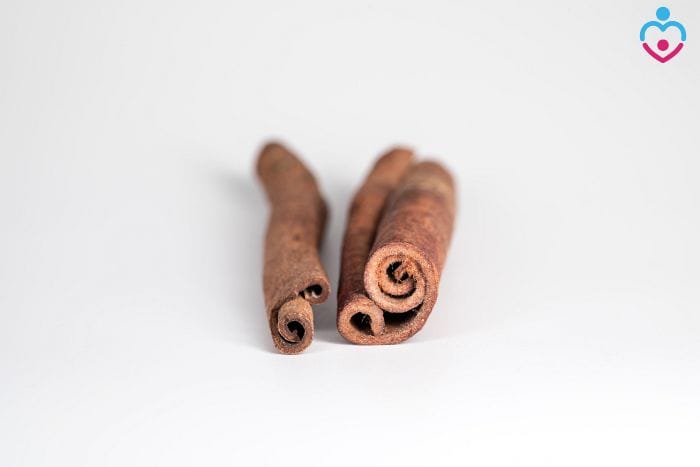
Cinnamon can add not only to the flavor of the food but also to its nutritional level.
- Half a teaspoon of Cinnamon can help avoid a series of health problems. If you add this to a daily diet, you can help reduce cholesterol and keep the level of blood sugar within healthy parameters.
- This spice can also help avoid or even treat yeast infections, nausea, and blood clotting.
- It can also reduce blood pressure and keep it under control for a long time if you add Cinnamon to your daily meal or dessert.
- Given all these benefits, Cinnamon is an excellent spice for both babies and their parents.

Is there any known allergic reaction to Cinnamon in babies?
Even if some babies can develop a cinnamon allergy, these situations are rare.
- When a baby develops an allergic reaction to Cinnamon, it happens because their immune system doesn't Identify this ingredient as safe and reacts to it adversely, trying to fight it and eliminate it from the body.
- In this situation, the body will create antibodies as well as a substance known as histamine.
- If your baby is allergic to Cinnamon, the symptoms can vary from skin irritations to digestive problems and even respiratory problems.
- An allergic reaction on the skin will include signs like itchiness, rashes, blisters, hives, irritation, and tingling in the mouth.
- Gastrointestinal reactions manifest as vomiting, diarrhea, and cramps, and you should be able to notice if your baby experiences any of these side effects.
- Babies who experience a cinnamon allergy can also show symptoms similar to those of a cold. They might cough, sneeze, have an itchy throat, runny nose as well as red eyes.
- The worst allergic reaction is anaphylaxis and even if this is rare, identifying the signs is crucial as it is a life-threatening condition.
Take your baby to an emergency room if you notice that they have swollen lips, dizziness, difficulty breathing, severe vomiting, rapid heartbeat, a fast drop in blood pressure.

When can babies have Cinnamon?

According to pediatricians, babies can safely have Cinnamon in their diet once they reached six months old.
- You should add this ingredient when your baby started eating solid food and make sure you don't overdo it.
- A pinch of Cinnamon on their fruit puree should be enough to enhance the flavor and give your baby a delicious meal.
- Also, try not to add Cinnamon to every meal your baby has. Stick to one meal a day and sprinkle a bit of this spice on top of it.
- If your baby is six months old but still has an exclusive breastfeeding diet, it is best to add Cinnamon to their meal until they eat solids.
- Once you introduced this seasoning to their food, observe them throughout a couple of days to see any side effects.
- If your baby seems fine and doesn't experience any discomfort, you can continue to spice their food with Cinnamon every now and then.
- However, if they have any of the side effects mentioned above, talk to your pediatrician before giving them Cinnamon again.

In what form of Cinnamon would be the best for babies?
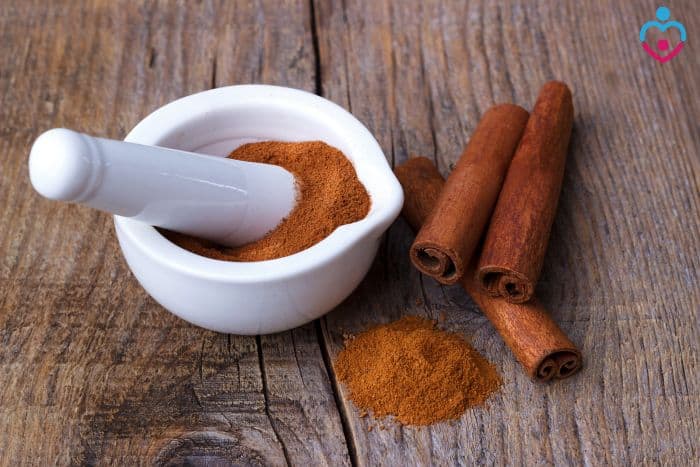
If you want to add Cinnamon to your baby's diet, you should maintain the quantities small.
- A quarter of a teaspoon of Cinnamon sprinkled on top of their purees or finger snacks is the best way to go.
- You don't want to add too much Cinnamon to their food even if they seem to like it a lot because chances are that they will experience side effects such as vomiting or gas.
- You can also mix a bit of Cinnamon in their food as you are blending the ingredients. They might like the distinctive taste it offers to the dish, and they don't have to see it on top of it.

Can babies have Cinnamon applesauce?
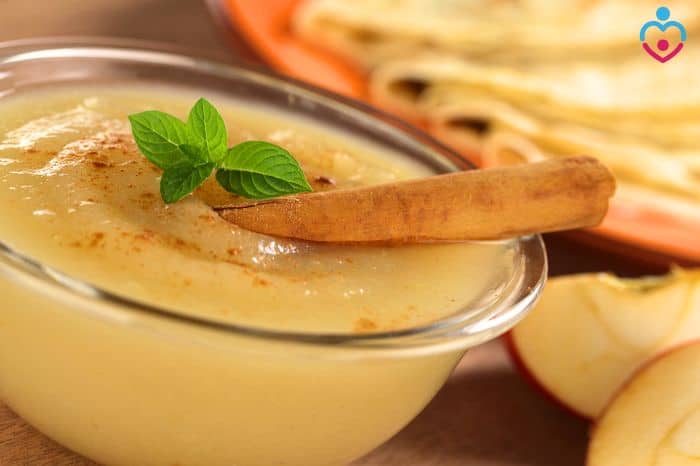
When you first start adding solid foods to your baby's diet, you should stick to one ingredient.
- So, if you give them applesauce, use only apples to prepare it. Adding Cinnamon to a dish like that should come only after making sure that your baby has no side effects.
- If they seem to eat applesauce plain just fine and they don't experience any discomfort, you can start seasoning it with a pinch of Cinnamon.

Can toddlers have Cinnamon?
If your toddler is older than six months and started eating solid foods, adding Cinnamon to their meals will not be a problem.
- Start with a small quantity and increase it as your baby grows older.
- Regardless of the age of your toddler, it is essential to not overdo it.
- A quarter of a teaspoon is all a baby needs to enjoy the benefits of this spice.

Can Cinnamon be used for teething babies?

One of the fantastic benefits of Cinnamon in babies is that it can reduce inflammation caused by the teething phase.
- During the teething phase, your baby's gums will be swollen, and Cinnamon can be a natural remedy to alleviate their pain.
- However, keep in mind that there are no medical studies to suggest the efficiency of Cinnamon during the teething phase.
- However, we know that this spice has anti-inflammatory benefits that could help babies struggling with all types of inflammation.

Does Cinnamon cause gas in babies?
One of the main concerns parents have is if Cinnamon will make the baby gassy.
- Cinnamon, as well as other spices, can cause gas in babies. Still, if you don't give them too much of it, they will not necessarily experience such side effects.
- Sprinkling a bit of Cinnamon on their food for an extra flavor will most likely not cause gas or any other side effects for your baby.
- The happens for garlic and onion as well as curry and other similar spices.

What other spices can babies have?
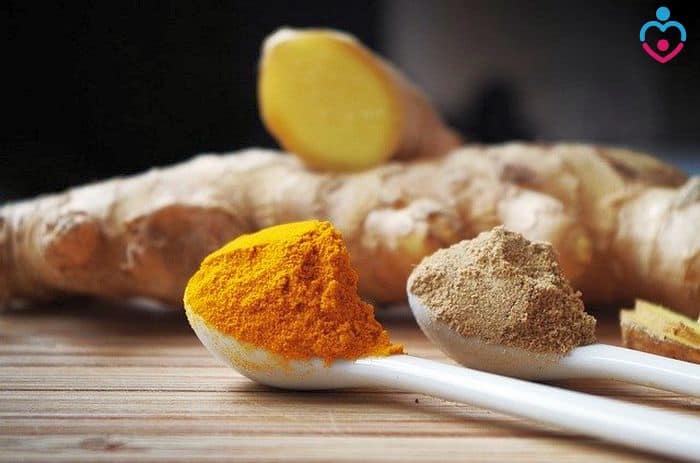
The general rule says you can start season your baby's food with different spices as soon as they start eating solids about six months.
- At this age, you can add to their food not only Cinnamon but also salt and turmeric, or other herbs as long as you do it in small quantities.
- The only aspect you need to take into account is to season their food with one spice at a time and observe the reactions they might have to it.
- Also, only add spices to their food once you are sure that they have no side effects to eating it plain.
- By doing so, you will find it easier to identify if your child has an allergic reaction to a specific ingredient, and you can eliminate it from their diet.

Can you add Cinnamon to baby rice cereal
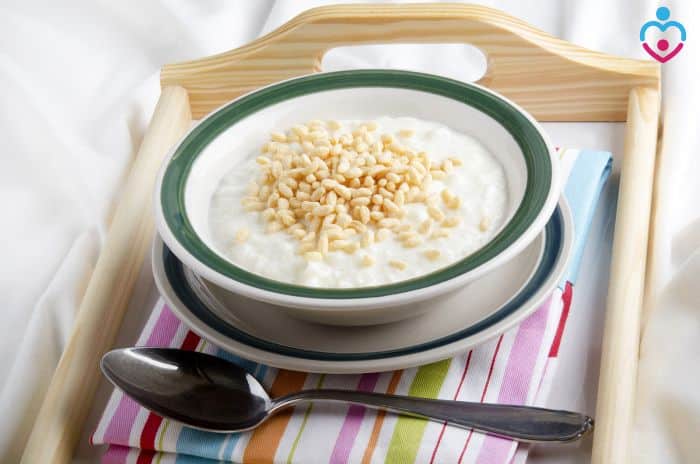
The general rule says that you can add cereal on any type of baby food as long as you do so in moderation.
- As a matter of fact, many products you will find in supermarkets contain Cinnamon, and they are addressed to babies and toddlers.
- Cinnamon is not a dangerous spice, and it is generally considered not only safe but also beneficial.
- When it comes to rice cereal, a pinch of Cinnamon can enhance the flavor and help your baby enjoy their meal better.
- However, keep in mind that if you add Cinnamon to their rice cereal, you want to skip other spices that you might also be tempted to add.
- Let your baby enjoy one distinct flavor at a time!

Can babies have Cinnamon graham crackers?
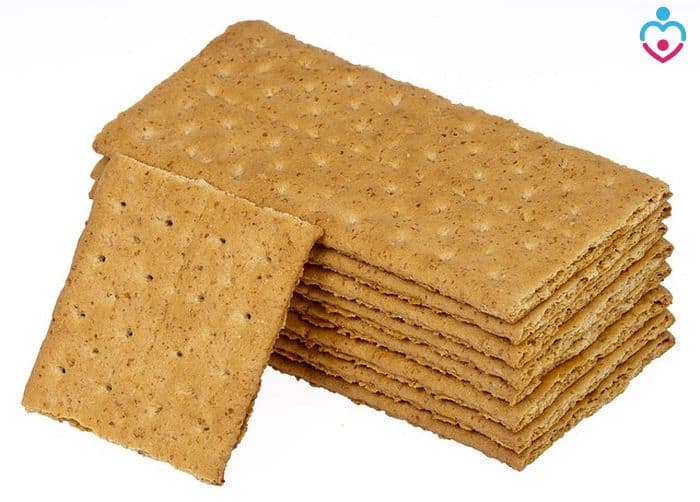
If you think of giving your baby graham crackers, with or without Cinnamon, you have to know that they are not the type of snack they should have daily.
- This snack can contain a high level of sugar that will not benefit your baby on a daily diet.
- If you choose graham crackers with Cinnamon on them, the same rule applies.
- So, you can give your baby a graham cracker every now and then but don't make a daily habit out of this.

5 best baby food recipes using Cinnamon
Here are some of the best recipes you can put together for your baby so they can enjoy a delicious meal! Keep the quantity of ¼ teaspoon of Cinnamon for all the following recipes. When you need to use a liquid, choose between water or a type of milk that your baby likes.
1. Sweet potato, banana, and cinnamon puree Recipe
To make this delicious puree, all you need is a small or medium sweet potato, one banana, and a pinch of Cinnamon.
- Peel the sweet potato and cut it into cubes.
- Boil water in a pot and add the cubes of potatoes.
- Take them off the stove and drain them until there is no more water in the bowl.
- Allow the potato cubes to cool down for ten minutes and cut the banana into three to four pieces according to its size.
- Add the potato cubes and the banana into a blender and mix until you obtain a paste.
- You might have to add ¼ of a cup of water or breastmilk pr any other liquid of your choice that you know your baby is familiar with.
- Adding liquid will give your puree a creamier consistency.
- Transfer the puree to a bowl and sprinkle a pinch of Cinnamon on top of it. Your baby will love this combination of flavors!

2. Apple, banana puree with Cinnamon Recipe
If you know that your baby loves to eat both apples and bananas, you can combine these two delicious fruits into a tasty meal.
- You will have to peel the apple and cut it into slices and do the same with the banana.
- Add the two fruits and a liquid of your choice in the blender and mix until you obtain the creamy consistency you want.
- The liquid you add could be water or a type of milk, but apple juice could work just as well too.
- Transfer it to a bowl and season the puree with a ¼ teaspoon of Cinnamon before serving it to your baby.

3. Carrot, apple, and Cinnamon Recipe
If your baby likes carrots, you can combine this tasty veggie with apple and obtain a nutritious and delicious meal.
- Cut the carrot into smaller pieces, boil it, or steam it until you can easily stab it with a fork.
- Take it off the stove and allow it to cool down for up to ten minutes.
- Peel the apple and cut it into slices or cubes.
- It is important to peel the apple as babies cannot digest the peel easily, and some don't even like it.
- Put the carrot pieces and apple slices in the blender and mix along with water or milk until you obtain a puree.
- This will depend on the consistency you want your puree to have in terms of how much liquid you add.
- Put the puree in a bowl and season it with Cinnamon for an extra flavor.

4. Pear puree with Cinnamon Recipe
If your baby just started to eat solid foods, chances are that you want to stick to simple meals made of one ingredient.
- Pears are some of the best fruits you can give to a baby as they start to eat solids because they are tasty and easy to digest.
- All you have to do is peel one pear and cut it into slices before putting it in the blender.
- Add ¼ cup of milk or water and blend until it becomes creamy.
- Pour the puree into a bowl and season with a pinch of Cinnamon.
- If your baby likes this recipe, you can always move to more complex meals.

5. Rice cereal with Cinnamon Recipe
Rice cereal is a perfect choice for a six-month-old baby, and it goes excellent with Cinnamon.
- You will need to add 4 to 6 scoops of cereal into a bowl and mix it with boiled milk. You can also use breastmilk for this recipe.
- Allow the cereal to cool down and add the Cinnamon.
- Stick to a quarter of a teaspoon of Cinnamon, and don't add any other seasonings.
- This meal is also more filling than other meals, so you might want to give it to your baby for lunch rather than for dinner.

Can a nursing mom eat Cinnamon?
As a nursing mother, your diet is of significant importance, so you should pay attention to everything you eat and know how it can impact the quality of your breastmilk.
- The good news is that Cinnamon and other spices will not affect the quality of your breastmilk.
- You can safely enjoy your Cinnamon or curry and garlic and chili with no concerns during the nursing phase.
- The downside of eating spices like that is the fact that your breastmilk might have a different taste.
- Some babies might not appreciate the taste of Cinnamon or other spices in the breastmilk, so this is a risk you will have to consider.

Cinnamon is one of those spices that are not only safe but also a healthy choice to add a rich flavor to your baby's food. It is tasty and easy to find, so you might want to try Cinnamon before trying any other spices in their diet.
However, keep in mind that even Cinnamon can generate side effects from mild to severe. You should contact your pediatrician if you notice such reactions in your baby.




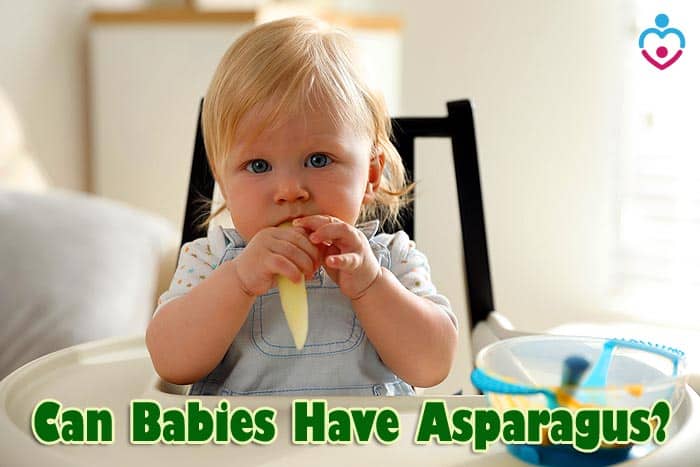
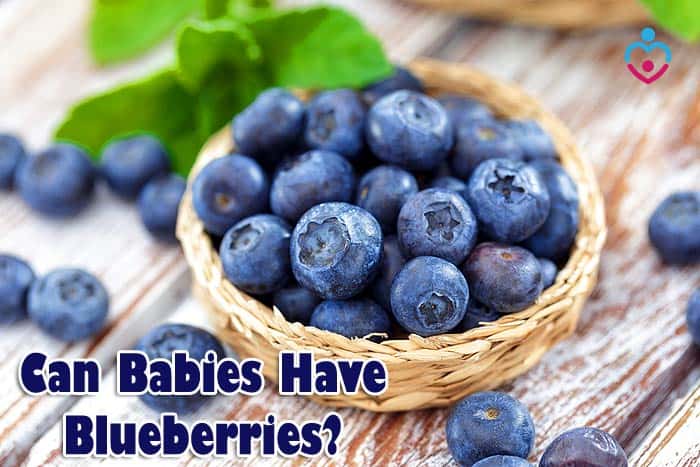
Leave a Reply